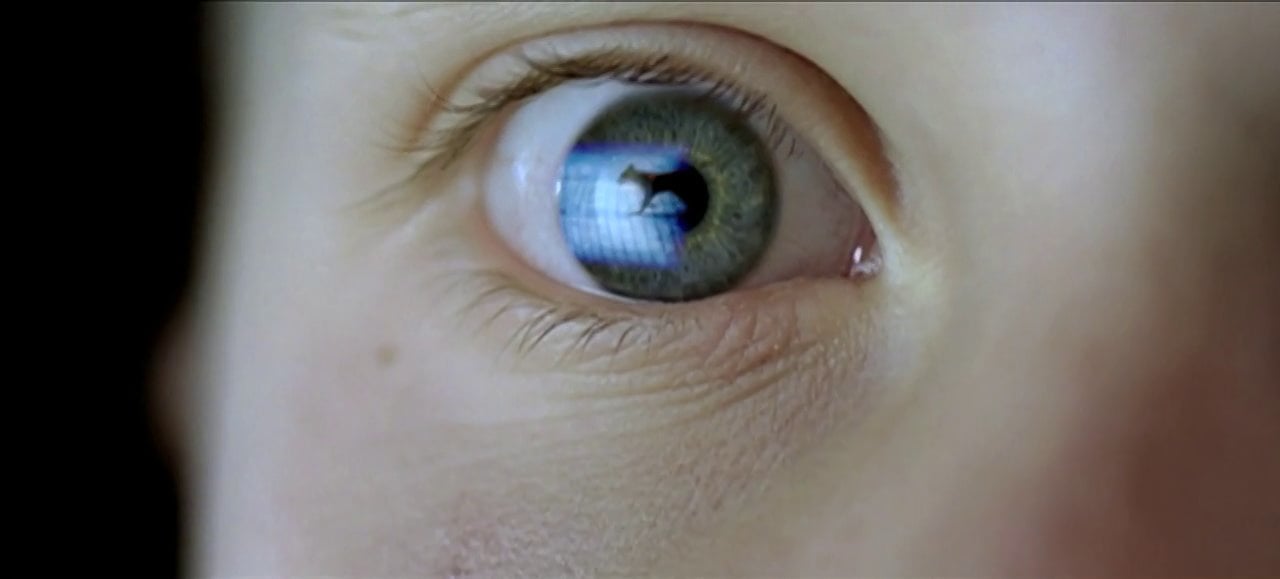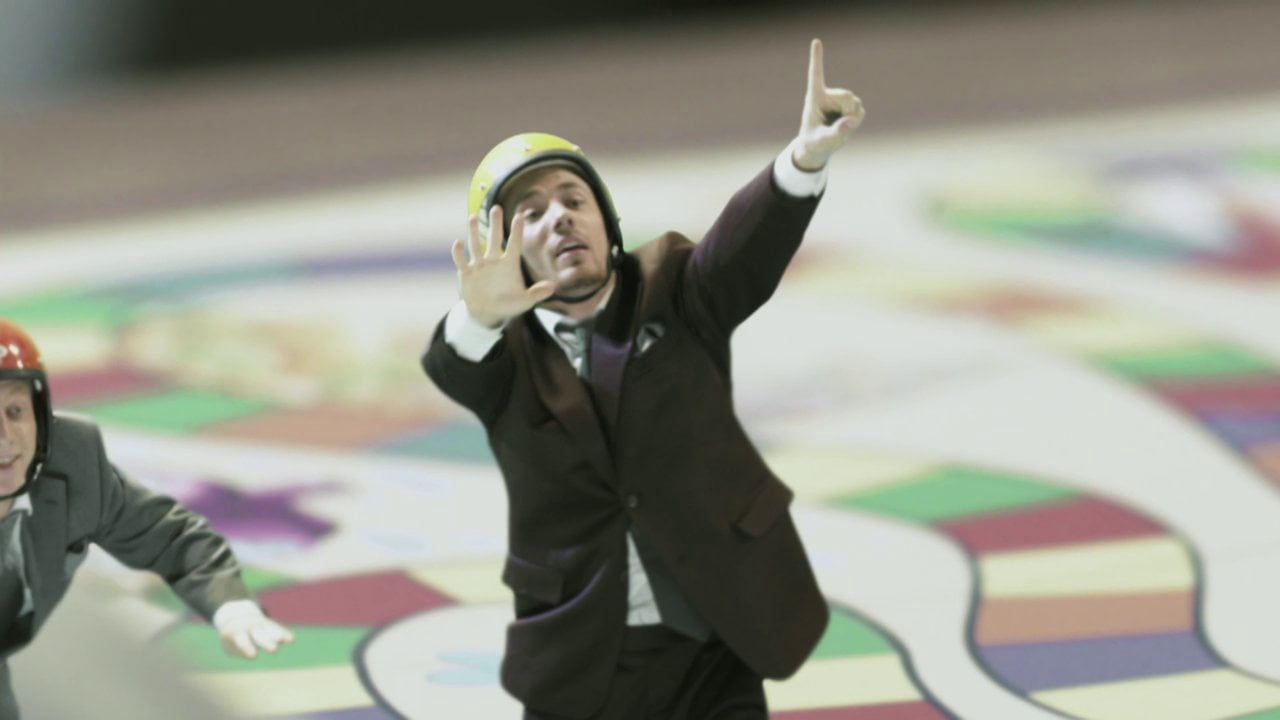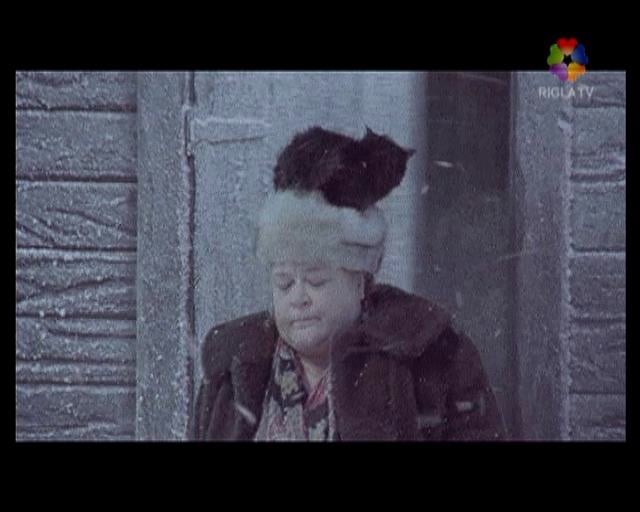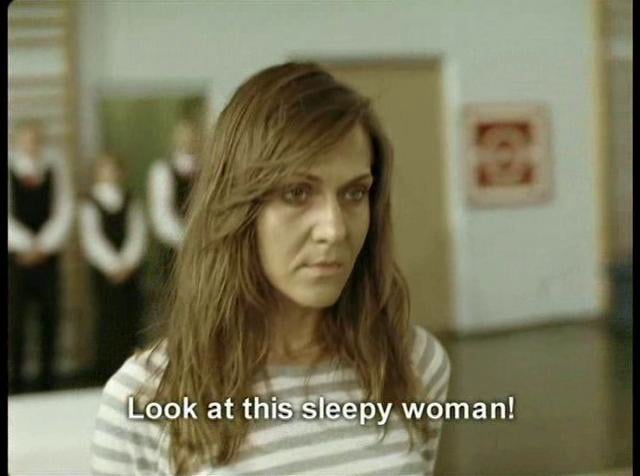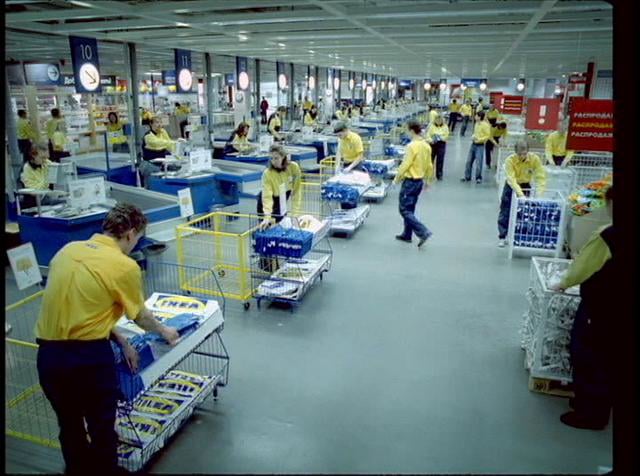Please tell us how your directing work in Russia came about and evolved?
I guess it started with the infamous Ron Redel going on a reconnaissance trip to Moscow back in 2004 or something, meeting lots of production companies and showing them reels. One of them was mine. About a year later I got a call from Bazelevs, one of the biggest production companies there and they sent me this weird script. I didn’t get the job, but they kept sending scripts and I got the next one. A great few scripts for a new year’s sales campaign for IKEA, from an agency called Instinct, a spin off from the local BBDO group.
I still remember it very clearly, it was just before Xmas and it was all really dark and mysterious. Lots of snow everywhere and only a few hours of sunlight a day. I was driven around in this old Volga with -20 outside. The driver didn’t speak a word of English and he was constantly smoking heavy Siberian cigarettes whilst chuckling to humour fm, a local radio station. It was like I had landed in the middle of a David Lynch film. Anyway the shoot was great, those ads are still some of my favourites.
After that, Instinct and me hit it off and they started sending me loads of stuff. All the ads I did in Moscow from 2005 till 2011 were in some ways related to Instinct. In the meantime I started working a lot more in Kiev, directing ads for local and Russian companies. Kiev has been the “Prague” for Moscow for a while now as it is cheaper to shoot there.
Btw never tell a person from the Ukraine they are Russian, cos you might get hit in the face. These two countries share an intimate and sometimes volatile history.
Are you signed to a production company there?
No, I’m not and never was signed to a production company. It’s very much been a lone ranger type existence. I’ve just built up loads of contacts throughout the years.
And what is your creative process like working with Russian creatives? Do they come up with briefs and expect you to film them literally or do you put in a lot of creative input as well?
It’s like in London. They write the scripts and you add what you think will make the scripts better and funnier. And if you win the pitch, you debate how far you can push it. Of course, like any shoot on the planet, with some creatives you get on better than with others. It’s the nature of the beast.
I always worked with agencies that wrote really good scripts, like Instinct and now recently also Voshod from Yekaterinburg. These places are full of intelligent people who know what they want. They invite contributions from the people they want to work with. Admittedly the advertising business is still very young in Russia and Ukraine, so there is a lot of questionable stuff around, but these are countries with an amazing cultural and cinematic history, so it was always unavoidable that there’d be some real and exciting talent as well.
Is the filming and production process similar to elsewhere – what are the idiosyncratic quirks of the system there?
The idiosyncratic quirks are getting ironed out more and more I think. The production process is pretty much like anywhere else now.
After the wall came down in 1989, I think a lot of the older generations were cut off and left by the wayside unable to acclimatize to the new times. So when I first went to work there, it was quite striking how the whole thing was run by young people. Most of the producers I worked with were rarely above 25 years old which was a real shock compared to London. It definitely added an element of fun but it was also extremely chaotic at times, as some of them just didn’t know what they were doing. And that combined with the culture shock of working in Russia and the obvious language barrier, it felt quite wild, but nothing really serious ever happened (I guess the 90s were the really crazy times).
It was more small things like the wrong principal cast turning up on the day of shooting, sets with ceilings missing, producers threatening me to make me pay for extra film stock if I wasn’t keeping to the budgeted amount, cutting five commercials in one afternoon,… I realised pretty quickly I had to be really hands on and that I had to constantly check whether this or that had been done.
The only quirks you get now are these monster shoots they have, especially in Kiev, where they shoot for 40 hours or more and it’s still supposed to be one day. They do this to save money, but actually it ends up costing them much more in overtime. You see all these crewmembers looking like corpses at the end of it. Quite ludicrous really and probably not very health and safety, hahaha.
Do you work with local crews – who would you take with you from the UK?
I’ve always arrived on my own and work most of of the time with an entirely new local crew and production company. At first this was daunting but now I’m so used to it and I really enjoy it. It’s a lot of fun meeting all these people every time. Most of them have a pretty good sense of humour, very dark. The production companies I worked with most are Bazelevs and OkeyDokey in Moscow, Essehouse and Radioaktive in Kiev.
I never brought anyone in from the UK, ‘cos there just wouldn’t be any budget for it. When it comes to key staff they have some really talented people there, especially DOPs. Their film schools are some of the best in the world.
Do you see the job through to final edit?
No, the deal is always you stay ‘til you deliver a rough cut. Only on a few jobs have I stayed longer, or checked in on post when back home. I guess they try to minimize your stay to save money. It’s actually getting shorter and shorter I have noticed over the last few years. In and out. Bish bash bosh. I like it, cos everything becomes very concentrated, you can’t really allow yourself to overthink things and you just have to get on with it. Makes you think on your feet.
Talking of idiosyncratic quirks a lot of your work is wonderfully surreal and dour. Is this a matter of you being the ideal director to shoot this style or is this what Russian advertising is like generally?
As I said earlier a lot of the advertising is still pretty blunt and unsophisticated in the Ukraine and Russia, so my style represents only a very small fraction of what’s going on there.
My style is such that more conservative clients there will never pick me, so I tend to get the scripts that suit my style. As a consequence, most of the time I end up doing jobs I really enjoy doing.
Also when they go dark, they go really dark. The commercial I did for Argayasha chickens had to be pulled cos housewives rang in to say that it gave their children nightmares. I was really impressed by the courage of that client, you get some real mavericks.
How’s your Russian? Is it a country you’ve grown more to love or become more frustrated with?
My Russian is bad, because I’m working with people who speak pretty good English all the time. It’s a bad excuse and I feel I miss out as language is a great way into a culture. Each time I go back there, I end up re-deciphering the Cyrillic alphabet. Not good.
But anyway I seemed to be attracted to Russia and not only for the jobs, cos I have travelled there quite a bit as well. I did the trans Mongolian train in 2001 and went via Vladivostok in 2009 on an overland trip from Istanbul to Tokyo. It’s an amazing place with 11 time zones till a few years ago, when Putin decided to make it 9. Still quite a lot.
I have a lot of friends both in Moscow and Kiev. Great people. With a big heart, raucous laughter and the vodka never too far away.
What’s the craziest shoot you’ve ever done there?
Well the most interesting one was definitely the one I did for LADA cars. Ill never forget that one, it was almost like one of my backpacking trips condensed into ten days.
First there was the internal flight (lots of Russians will think I’m a wimp mentioning this, because for them it’s daily life) on an old Tupolev to Samara, a big city by the Volga. It was mid summer and it was really hot and sticky. The plane was taxiing very slowly. People got annoyed and stood up demanding that a door would be opened, cos the AC wasn’t working. Next thing you know, half the plane are standing by the opened door, smoking and laughing with the crew, legs dangling out of the opened door, whilst the plane continued to taxi. All the while, the pilot was asleep in front of me. Even when the plane finally took off.
I was literally crapping myself, because on top of that, the roar at take off was deafening, like I had been banished to hell and the devil or one of his associates was screaming in my ears.
To my surprise I was still alive when we started descending. I looked over to my producer who was casually on his mobile telling the local producer we’d be there soon. The next day I told the producer I wanted to take the train for the trip back. I made something up about how I love trains. Which I do, so it was easy.
Then the experience of shooting in one of the iconic symbols of the Soviet era was just amazing. The Lada factory was humongous, a whole town had been built especially for that factory. Not much had changed there since it had been built in the 70s, so it was like spending a few days back in time, like I had slipped across the iron curtain and found shelter behind a few pristine Ladas.
Have you ever considered shooting a personal project in Russia. If so what would that be?
Well, it’s an infinite resource for making a film. The innumerable types of landscapes, the amazing faces you see on the street, the incredible stories you hear from almost everyone you meet, the weird and wonderful locations and relics from the Soviet era and before… the list goes on and on and I’ll stop before I start to sound like the Russian film commission.
Yeah I always wanted to go back on the Transiberian/Mongolian and shoot what I experienced more than ten years ago. Could make an interesting film.
LINKS:

